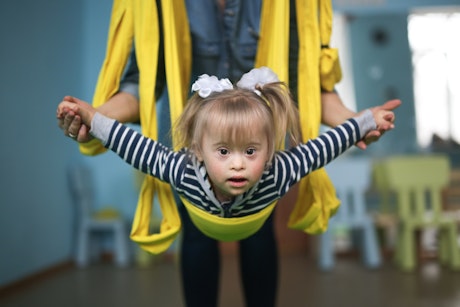Find Therapists and Specialists
Therapists and Specialists Services
Therapy and specialised support sessions can help you adapt or regain independence with a disability, manage behaviours or look after your mental wellbeing.

Assessments
Assessments will identify what your needs and challenges are to make sure you receive the appropriate support.

Childhood Supports
Early childhood intervention supports can help maximise your child's development and give them the skills to participate in daily activities.

Professionals
Medical and therapeutic professionals can assist in different ways to help manage your disability and improve your life.

Training and Workshops
Through training or workshops you can learn important skills to help you live a more independent life or to help you in your caring role.

Speech Therapists
Speech therapists work on smoothing out communication and swallowing difficulties in both children and adults.

Occupational Therapists
Occupational therapists (OTs) help people of all ages gain or regain their confidence and independence in everyday life.

Physiotherapists
Physiotherapists work closely with their patients to help them feel better across a number of ailments. They assess, diagnose, treat and prevent a range of health conditions through massage, stretching and exercises.

Paediatricians
Paediatricians manage the health of children, including physical, behaviour and mental health issues. They diagnose and treat childhood illness, infections and disease.
Therapists and Specialists
For instance, you may need the services of a physiotherapist to help with movement, a speech therapist to help with communication or swallowing issues or a nutritionist to advise you on your diet. Occupational therapists can give recommendations for equipment specific to your needs and other specialists can assist with teaching you life skills or help with self expression.
The best therapy or support depends on your disability, what your needs are and what challenges you're looking to overcome.
If you are caring for a loved one with a disability, you or other members of your family may also be entitled to support to help you in your caring role. This may be something general such as learning first aid skills, or it could be more specialised to the needs of the person with disability; for example learning sign language or how to manage behaviours associated with autism.


